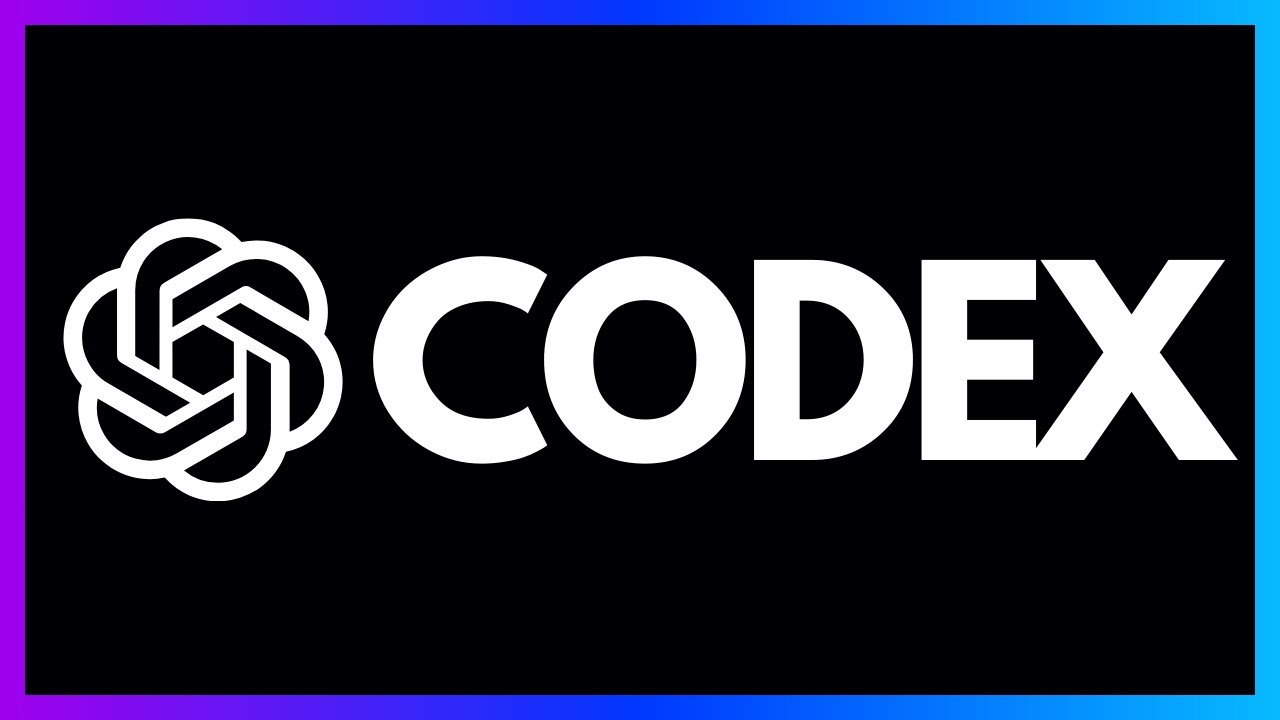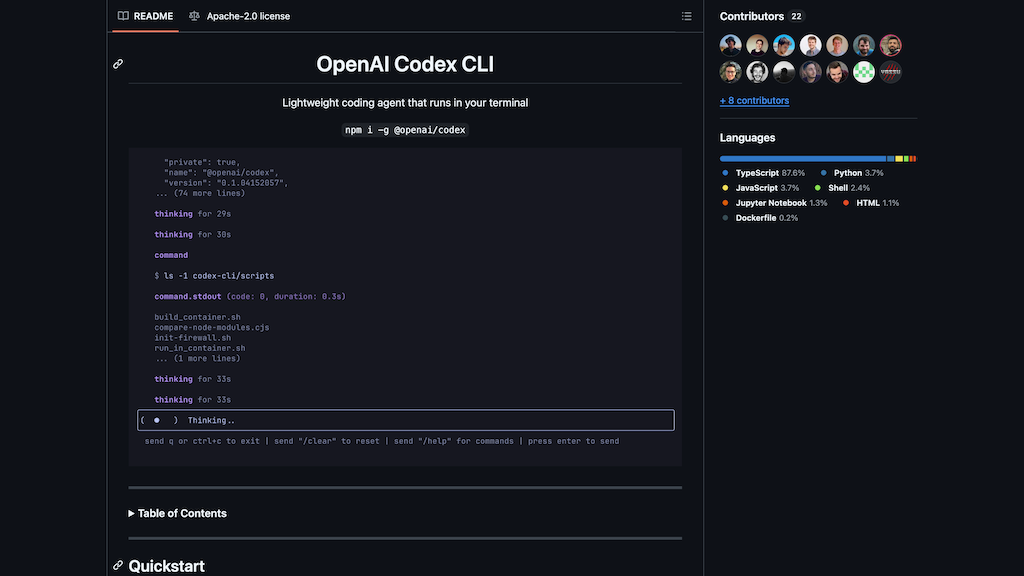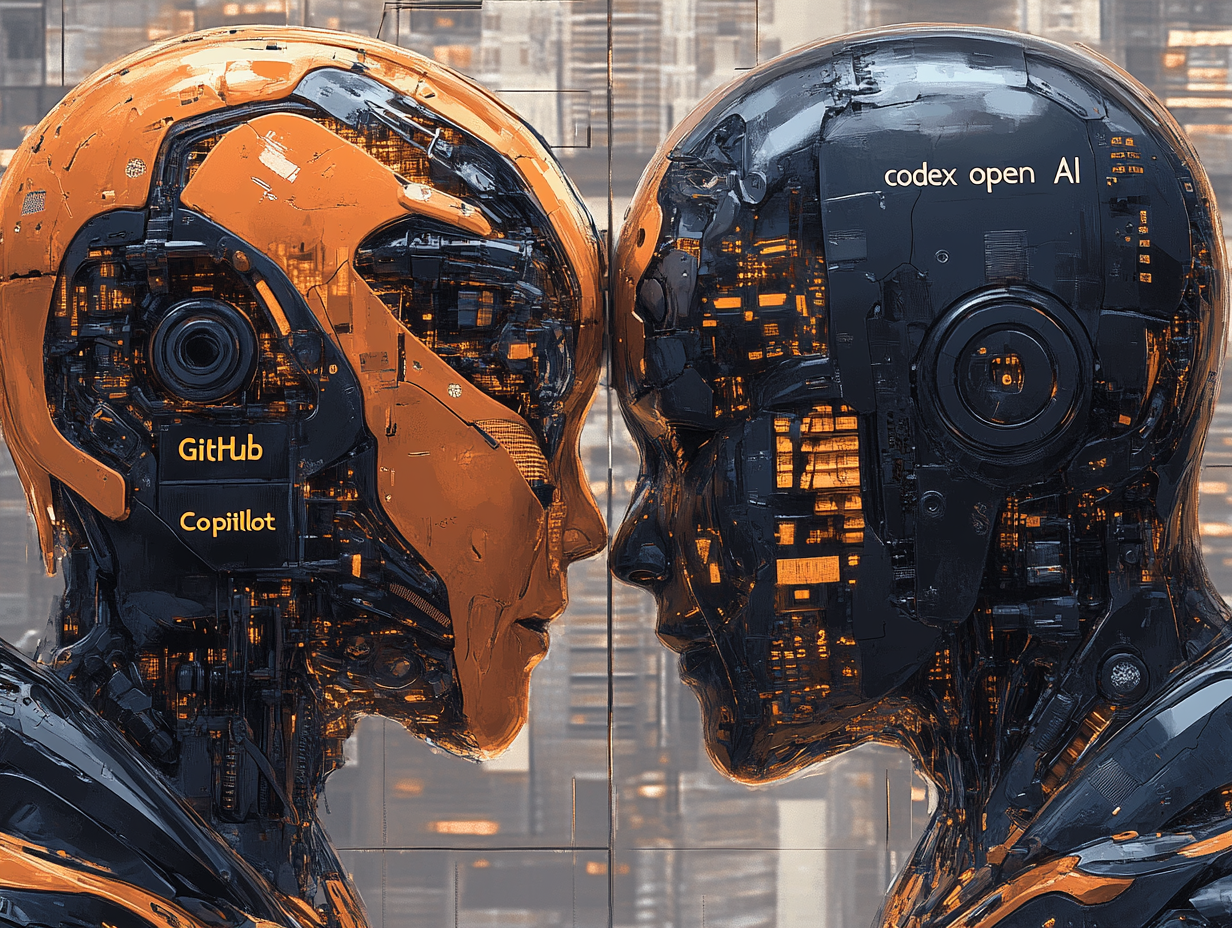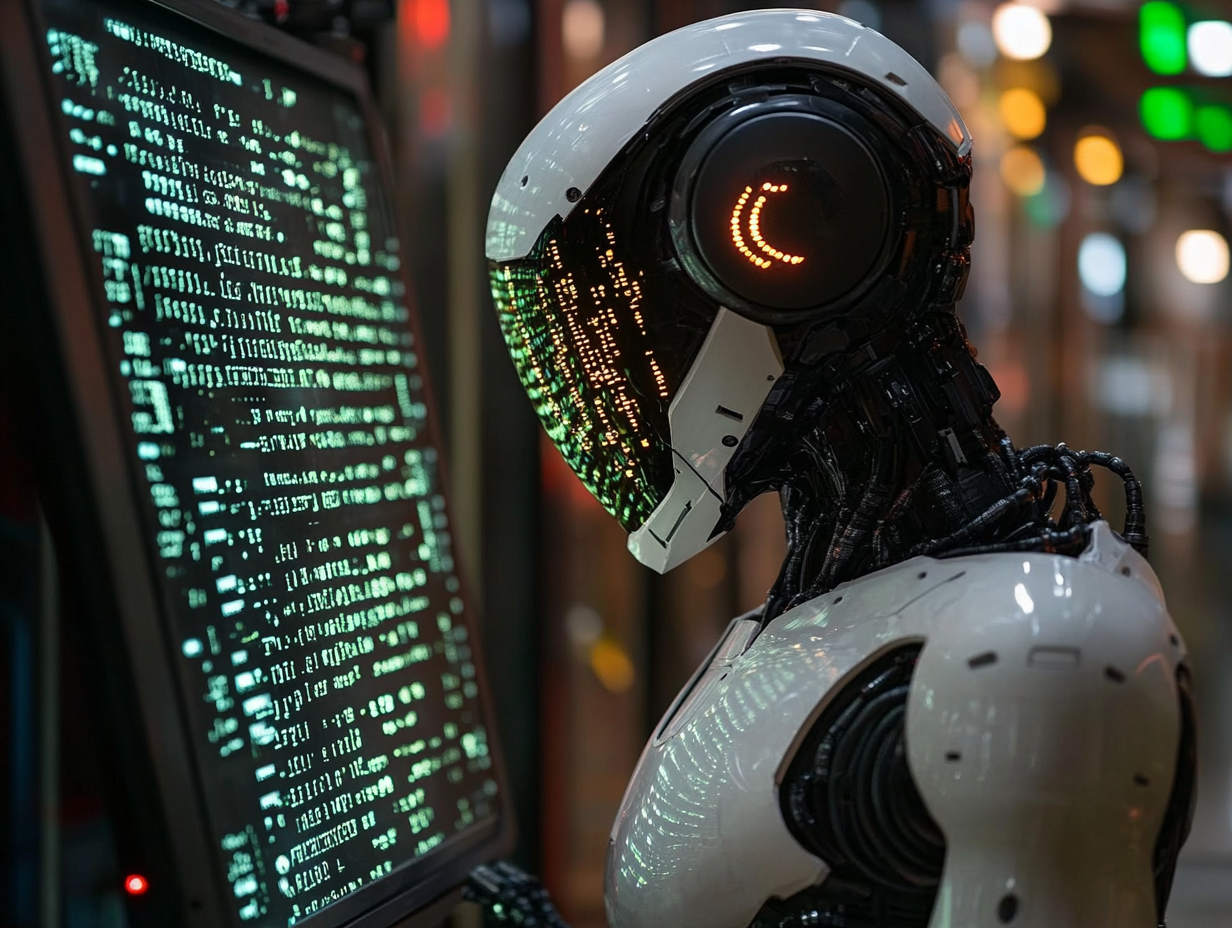
Back to hub
Blog
Codex Open AI: The Ultimate Guide to AI-Powered Coding in 2025
Published on May 16, 2025
EDIT: After testing it thoroughly with Emelia.io's CTO, apart from a few basic tasks (which don't warrant the wait time involved), we couldn't find any relevant use cases for a real project. If you have found any, please let us know via the platform's support system.
We are paying users of all AI tools, including Gemini, Anthropic, Midjourney, ChatGPT, Grok, etc. But this is the first time we really feel like we've wasted $200 on something useless.
The moral of the story: The idea is supposed to be great, but it's not there yet. In practice, Cursor is 1,000 times more useful!
Revolutionizing Software Development with AI
https://www.youtube.com/live/hhdpnbfH6NU?si=GMXfgYelzKTUSyTh
OpenAI Codex is an artificial intelligence model developed by OpenAI that parses natural language and generates code in response. It powers GitHub Copilot, a programming autocompletion tool for select IDEs, like Visual Studio Code and Neovim. Codex is a descendant of OpenAI's GPT-3 model, fine-tuned for use in programming applications.In today's fast-paced digital landscape, writing efficient code quickly has become more critical than ever. Whether you're a seasoned developer or just starting your coding journey, having the right tools can make all the difference.
Enter Codex Open AI – a revolutionary technology that's changing how we approach software development.Imagine telling your computer what you want to build in plain English, and watching as it transforms your words into functional code. That's not science fiction anymore; it's the reality that Codex Open AI brings to the table. But what exactly is it, how does it work, and how can it benefit your development workflow? Let's dive in.
What is Codex Open AI?

OpenAI Codex is an artificial intelligence model developed by OpenAI. It parses natural language and generates code in response. Codex is a descendant of OpenAI's GPT-3 model, fine-tuned for use in programming applications. Based on GPT-3, a neural network trained on text, Codex was additionally trained on 159 gigabytes of Python code from 54 million GitHub repositories.
At its core, Codex Open AI is a sophisticated AI system designed to bridge the gap between human language and computer code. Think of it as a translator that understands both what you want to accomplish and how to express that in programming languages.Codex automates tasks such as bug fixing, refactoring, and test generation. It is currently available as a preview for ChatGPT Pro, Enterprise, and Team users.What makes Codex truly special is its ability to understand context and generate not just any code, but code that actually works for your specific needs. Unlike basic code generators of the past, Codex understands the nuances of what you're asking for and can implement complex logic based on simple descriptions.
The Evolution of Codex

In 2021, OpenAI released Codex, an AI system designed to generate code from natural language prompts. That original Codex model was deprecated as of March 2023 and is separate from the CLI tool.The technology has evolved significantly since then, culminating in the powerful new version we have in 2025.OpenAI announced on Friday it's launching a research preview of Codex, the company's most capable AI coding agent yet. Codex is powered by codex-1, a version of the company's o3 AI reasoning model optimized for software engineering tasks. OpenAI says codex-1 produces "cleaner" code than o3, adheres more precisely to instructions, and will iteratively run tests on its code until passing results are achieved.This latest iteration represents a quantum leap in AI-assisted coding capabilities. Gone are the days of simple autocomplete features - today's Codex can tackle entire programming challenges autonomously.
How Codex Open AI Works: The Technical Breakdown
At its core, Codex is powered by codex-1, a specialized version of OpenAI's o3 model, fine-tuned for the nuances of software engineering. This model's prowess stems from rigorous reinforcement learning, where it was trained on real-world coding tasks across various environments. The objective was clear: generate code that not only functions flawlessly but also mirrors human stylistic preferences, adheres precisely to instructions, and can iteratively run tests until a passing result is achieved.The magic behind Codex Open AI lies in its extensive training on both natural language and billions of lines of code. This dual training allows it to create a powerful mapping between what people say they want and the code required to accomplish those tasks.
Key Components of Codex Technology:
Natural Language Processing (NLP): Understands your instructions in plain English
Code Generation Engine: Translates instructions into functional code
Multi-language Support: Works across numerous programming languages
Context Awareness: Retains information about previous instructions
Iterative Testing: Tests and refines code until it works correctly
In a series of coding tests carried out by OpenAI, Codex achieved an accuracy rate of 75%. That's 5% better than the most capable, hardware-intensive version of o3. OpenAI's first-generation reasoning model, o1, scored 11%.These impressive numbers highlight just how far AI-assisted coding has come in a relatively short time. Let's look at what makes this possible.
Key Features and Capabilities of Codex Open AI
The Codex agent runs in a sandboxed, virtual computer in the cloud. By connecting with GitHub, Codex's environment can come preloaded with your code repositories. OpenAI says the AI coding agent will take anywhere from one to 30 minutes to write simple features, fix bugs, answer questions about your codebase, and run tests, among other tasks. Codex can handle multiple software engineering tasks simultaneously, says OpenAI, and it doesn't limit users from accessing their computer and browser while it's running.
1. Code Generation from Natural Language
A typical use case of Codex is for a user to type a comment, such as "//compute the moving average of an array for a given window size", then use the AI to suggest a block of code that satisfies that comment prompt.This feature allows even non-programmers to create functional code by describing what they want in plain language. For experienced programmers, it accelerates development by handling boilerplate and standard implementations.
2. Multi-language Support
OpenAI claims that Codex can create code in over a dozen programming languages, including Go, JavaScript, Perl, PHP, Ruby, Shell, Swift, and TypeScript, though it is most effective in Python. According to VentureBeat, demonstrations uploaded by OpenAI showed impressive coreference resolution capabilities. The demonstrators were able to create a browser game in JavaScript and generate data science charts using matplotlib.This versatility makes Codex an invaluable tool regardless of your technology stack or programming preferences.
3. Bug Fixing and Code Optimization
OpenAI is rolling out Codex, a cloud-based AI agent for software development that automates tasks like bug fixes and feature implementation. The company says Codex is designed to eventually establish a new paradigm for how code gets written.Not only can Codex generate new code, but it can also identify and repair problems in existing code, making it an excellent debugging assistant that can save developers countless hours of troubleshooting.
4. Integration with Development Workflows
Users with access to Codex can find the tool in ChatGPT's sidebar, and assign the agent new coding tasks by typing a prompt and clicking the "Code" button. Users can also ask questions about their codebase and click the "Ask" button. Below the prompting bar, users can see other tasks they've assigned Codex to do, and monitor their progress. In a briefing ahead of Codex's launch, OpenAI's Agents Research Lead, Josh Tobin, told TechCrunch the company eventually wants its AI coding agents to act as "virtual teammates," completing tasks autonomously that take human engineers "hours or even days" to accomplish.
Practical Applications of Codex Open AI in 2025
The potential applications of Codex Open AI span numerous industries and use cases. Here's how developers and businesses are leveraging this powerful tool in 2025:
Software Development Automation
At its heart, Codex utilizes the codex-1 model, which OpenAI claims generates "cleaner" code and adheres more precisely to instructions than the standard o3 model. Developers interact with Codex through the ChatGPT sidebar, initiating tasks by typing a prompt and selecting either "Code" or "Ask." To maintain transparency and allow for verification, Codex furnishes citations from terminal logs and test outputs related to its operations. Furthermore, users can steer Codex's behavior within particular projects by creating AGENTS.md files in their repositories; these files guide the AI in navigating the codebase and adhering to project-specific testing procedures and established practices.
OpenAI's vision extends to these AI coding agents becoming "virtual teammates," completing tasks autonomously that take human engineers "hours or even days" to accomplish.For our email outreach campaigns at Emelia.io, we've utilized Codex to automate repetitive coding tasks like generating data validation functions and creating standardized API endpoints. This has allowed our development team to focus on the core business logic that makes our platform unique, rather than spending time on boilerplate code.
Education and Learning
OpenAI Codex can understand, complete, translate, and generate code based on natural language text prompts like "add an image of XYZ" or "resize the image to 100 px". This is partly demonstrated in the image above, where the Codex correctly interprets vague expressions like "that person" and "his" based on what was previously said. What makes Codex truly remarkable, however, is its ability to manipulate other software using natural language commands. Their commands can have tangible effects in the physical world, something the Codex's predecessor, GPT-3, could never achieve.
For example, a demonstration shows that Codex can accurately generate code that instructs Microsoft Word to perform functions such as removing all leading and trailing whitespace from a document. A large amount of context can easily be stored and remembered with Codex.Codex is revolutionizing how coding is taught, making programming more accessible to beginners. Students can focus on understanding concepts rather than syntax, getting immediate feedback on their ideas through generated code.
Rapid Prototyping and MVP Development

OpenAI imagines a future where developers drive the work they want to own and delegate the rest to highly capable AI agents, leading to increased speed and productivity. To realize this, they are building a suite of Codex tools supporting both real-time collaboration and asynchronous delegation. While AI pairing tools like Codex CLI are becoming industry norms, the asynchronous, multi-agent workflow introduced by Codex in ChatGPT is seen as the future de facto standard for producing high-quality code.Startups and entrepreneurs are using Codex to quickly turn ideas into functional prototypes, dramatically reducing the time to market for new products. This is particularly valuable for non-technical founders who can now create working demos without extensive coding knowledge.Just like how Emelia.io helps businesses automate their outreach processes, Codex helps developers automate code creation - both tools ultimately save time and increase productivity.
Codex Open AI vs. GitHub Copilot: Comparison

Two of the most significant innovations in this space are OpenAI Codex and GitHub Copilot tools designed to assist developers with real-time code generation and suggestions. While both are closely related, there's an important distinction: OpenAI Codex is an AI model that powers a wide range of applications, including natural language-to-code transformations. On the other hand, GitHub Copilot is a product built on top of Codex, specifically designed to provide coding assistance directly within integrated development environments (IDEs) like Visual Studio Code.
Key Differences
Seamless IDE Integration: Unlike Codex, which requires API integration, Copilot is built directly into your IDE. This makes it extremely easy to use—just install the plugin, and you can start benefiting from AI-powered coding without any setup or configuration. Support for Multiple Languages: Like Codex, GitHub Copilot supports a wide array of programming languages including Python, JavaScript, TypeScript, Ruby, Go, Rust, and more. This makes it useful for developers working across different projects and tech stacks.Contextual Awareness: Copilot's suggestions are not just random autocompletions; they are highly contextual.
It analyzes the surrounding code, comments, and variable names to provide more relevant suggestions, helping developers write efficient and coherent code. Learning from Code Patterns: Copilot is particularly useful for repetitive or boilerplate code.GitHub Copilot may be more suitable for developers than OpenAI Codex. Instead of automatically generating one solution, Copilot gives users several suggestions to choose from. That way, the users remain in the "pilot's" seat. Codex can be applied in game development, data science, and many other industries.
Feature | Codex Open AI | GitHub Copilot |
Primary Focus | Complete code generation from natural language | Code suggestions and autocompletion |
Integration | API-based, works across platforms | Built into specific IDEs |
User Control | More autonomous code generation | More suggestion-based approach |
Application Scope | Broader application beyond just coding assistance | Focused on coding assistance during development |
Learning Curve | Requires learning API integration | Seamless integration with familiar IDEs |
How to Get Started with Codex Open AI in 2025
The new agent runs on codex-1, a variant of the o3 model tuned specifically for software development tasks. Codex is available now as a research preview for ChatGPT Pro, Enterprise, and Team users, with support for Plus and Edu subscribers coming soon.Codex is rolling out starting today to subscribers to ChatGPT Pro, Enterprise, and Team. OpenAI says users will have "generous access" to Codex to start, but in the coming weeks, the company will implement rate limits for the tool. Users will then have the option to purchase additional credits to use Codex, an OpenAI spokesperson tells TechCrunch. OpenAI plans to expand Codex access to ChatGPT Plus and Edu users soon.Getting started with Codex is straightforward:
Access: Subscribe to ChatGPT Pro, Enterprise or Team (Plus and Edu access coming soon)
Interface: Find Codex in the ChatGPT sidebar
Commands: Use "Code" for implementations or "Ask" for questions about your codebase
Repository Connection: Connect to GitHub to preload your existing code
Customization: Create AGENTS.md files to customize how Codex interacts with your projects
Best Practices for Effective Use
To maximize the benefits of Codex Open AI:
Be specific with prompts: The more detailed your instructions, the better the generated code
Start with small tasks: Begin with simple functions before progressing to complex features
Review generated code: Always verify the code meets your requirements and security standards
Iterative approach: Refine your prompts based on the results you receive
Combine with human expertise: Use Codex as a collaborative tool rather than a replacement
Much like how Emelia.io helps you optimize your outreach campaigns through intelligent automation, Codex helps optimize your coding workflow through AI assistance. Both tools are designed to enhance human capabilities, not replace them.
The Future of Codex Open AI and AI-Assisted Programming
Ultimately, these two interaction modes—real-time pairing and task delegation—are expected to converge. Developers will collaborate with AI agents across their IDEs and everyday tools for Q&A, suggestions, and offloading longer tasks in a unified workflow. Future plans include more interactive and flexible agent workflows, allowing developers to provide guidance mid-task, collaborate on implementation strategies, and receive proactive progress updates.
Concurrently, OpenAI is bolstering its OpenAI Codex CLI, updating it with a new codex-mini-latest model—a variant of the o4-mini thinking model. It is optimized for faster, low-latency code-related Q&A and editing directly in the terminal. According to the OpenAI Blog, API access for codex-mini-latest is priced at $1.50 per one million input tokens and $6 per one million output tokens, featuring a 75% prompt caching discount. This multifaceted approach, offering both an integrated GUI experience via Codex in ChatGPT and a flexible command-line alternative, demonstrates OpenAI's ambition to cater to a wide array of developer workflows. T
hese coding tools join other premium ChatGPT features, such as the AI video generation platform Sora and the Deep Research agent, as significant draws for its subscription tiers. OpenAI CEO Sam Altman characterized "Codex's integration into ChatGPT" as being "just the first step".
Emerging Trends in AI-Assisted Development
As we look ahead, several trends are shaping the future of tools like Codex:
Deeper integration with developer workflows: AI coding assistants will become seamlessly embedded in every aspect of the development process
More autonomous capabilities: Future versions will be able to handle increasingly complex programming tasks with minimal human oversight
Specialized domain knowledge: AI coding tools will develop deeper understanding of specific industries and use cases
Human-AI collaboration models: New paradigms for how developers and AI systems work together will emerge
Accessibility improvements: Programming will become more accessible to non-technical people through natural language interfaces
At Emelia.io, we're excited about these developments and how they can help businesses of all sizes streamline their operations. Just as our platform makes outreach and lead generation more efficient, Codex is making software development more accessible and productive.
Limitations and Ethical Considerations
In an interview with The Verge, OpenAI chief technology officer Greg Brockman said that "sometimes [Codex] doesn't quite know exactly what you're asking" and that it can require some trial and error. OpenAI researchers found that Codex struggles with multi-step prompts, often failing or yielding counter-intuitive behavior. Additionally, they brought up several safety issues, such as over-reliance by novice programmers, biases based on the training data, and security impacts due to vulnerable code.
VentureBeat stated that because Codex is trained on public data, it could be vulnerable to "data poisoning" via intentional uploads of malicious code.In a blog post, OpenAI says Codex will reliably refuse requests to develop "malicious software." Furthermore, Codex operates in an air-gapped environment, with no access to the broader internet or external APIs. This limits how dangerous Codex could be in the hands of a bad actor — but it may also hamper its usefulness. It's worth noting that AI coding agents, much like all generative AI systems today, are prone to mistakes. A recent study from Microsoft found that industry-leading AI coding models, such as Claude 3.7 Sonnet and o3-mini, struggled to reliably debug software. However, that doesn't seem to be dampening investor excitement in these tools.While Codex represents a significant advancement in AI-assisted coding, it's important to acknowledge its limitations:
Not a replacement for human developers: Codex lacks the creative problem-solving and intuition of experienced programmers
Security concerns: Generated code may contain vulnerabilities if not properly reviewed
Learning dependency: Over-reliance could potentially hamper learning for new programmers
Quality variations: Performance may vary depending on the complexity and specificity of tasks
Copyright and licensing questions: Generated code may raise intellectual property concerns
Conclusion: Embracing the AI-Powered Future of Coding

Codex Open AI represents a remarkable leap forward in how we approach software development. By bridging the gap between natural language and code, it's democratizing programming and enabling developers to work more efficiently than ever before.While it's not a replacement for human creativity and expertise, Codex is a powerful tool that augments our capabilities and allows us to focus on higher-level problem-solving rather than repetitive coding tasks.
As with any technology, its true potential will be realized through thoughtful implementation and responsible use.At Emelia.io, we understand the transformative power of intelligent automation - it's the core of what we do. Whether you're automating your email outreach campaigns with our platform or accelerating your development process with Codex, the goal is the same: to work smarter, not harder.As Codex continues to evolve, we can expect even more impressive capabilities that further blur the line between human and AI-generated code. The future of programming is collaborative, with humans and AI systems working together to create better software more efficiently than ever before.
FAQs About Codex Open AI

Q: What is Codex Open AI and how does it differ from ChatGPT? A: Codex is a cloud-based AI agent designed for software development. It automates tasks such as bug fixing, refactoring, and test generation, whereas ChatGPT is a general-purpose conversational AI. Codex is specifically optimized for code-related tasks.
Q: Which programming languages does Codex support? A: OpenAI claims that Codex can create code in over a dozen programming languages, including Go, JavaScript, Perl, PHP, Ruby, Shell, Swift, and TypeScript, though it is most effective in Python.
Q: How accurate is the code generated by Codex? A: In a series of coding tests carried out by OpenAI, Codex achieved an accuracy rate of 75%. That's 5% better than the most capable, hardware-intensive version of o3.However, all generated code should still be reviewed by developers.
Q: Is Codex available to everyone? A: Codex is available now as a research preview for ChatGPT Pro, Enterprise, and Team users, with support for Plus and Edu subscribers coming soon.
Q: Can Codex help with debugging existing code? A: Yes, Codex can automate tasks such as bug fixing, refactoring, and test generation.It can analyze your codebase and help identify and fix issues.
Q: How is Codex related to GitHub Copilot? A: There's an important distinction: OpenAI Codex is an AI model that powers a wide range of applications, including natural language-to-code transformations. On the other hand, GitHub Copilot is a product built on top of Codex, specifically designed to provide coding assistance directly within integrated development environments (IDEs) like Visual Studio Code.
Q: Are there security concerns with using Codex? A: In a blog post, OpenAI says Codex will reliably refuse requests to develop "malicious software." Furthermore, Codex operates in an air-gapped environment, with no access to the broader internet or external APIs.However, all generated code should still be reviewed for security.
Q: Does Codex require coding knowledge to use? A: While basic programming knowledge helps, Codex parses natural language and generates code in response, making it accessible even to those with limited coding experience.
Q: Can Codex be integrated into custom development environments? A: Codex CLI is built for developers who already live in the terminal and want ChatGPT-level reasoning plus the power to actually run code, manipulate files, and iterate - all under version control. In short, it's chat-driven development that understands and executes your repo. Zero setup - bring your OpenAI API key and it just works! Full auto-approval, while safe + secure by running network-disabled and directory-sandboxed · Multimodal - pass in screenshots or diagrams to implement features ✨ · And it's fully open-source so you can see and contribute to how it develops!
Q: How will Codex impact the future of software development? A: OpenAI is rolling out Codex, a cloud-based AI agent for software development that automates tasks like bug fixes and feature implementation. The company says Codex is designed to eventually establish a new paradigm for how code gets written.This suggests a major transformation in development workflows, with AI handling routine tasks while humans focus on creative problem-solving.

Clear, transparent prices without hidden fees
No commitment, prices to help you increase your prospecting.
Credits(optional)
You don't need credits if you just want to send emails or do actions on LinkedIn
May use it for :
Find Emails
AI Action
Phone Finder
Verify Emails
€19per month
1,000
5,000
10,000
50,000
100,000
1,000 Emails found
1,000 AI Actions
20 Number
4,000 Verify
€19per month
Discover other articles that might interest you !
See all articlesMarketing
Published on Jun 9, 2023
Cold Emailing: The Complete Guide to getting started
 Niels Co-founder
Niels Co-founderRead more
Software
Published on Nov 7, 2025
5 Invoice Management Software Tools That'll Actually Save Your Sanity (And Your Cash Flow)
 Niels Co-founder
Niels Co-founderRead more
Blog
Published on Oct 27, 2025
5 Residential Proxy Providers That Actually Deliver
 Niels Co-founder
Niels Co-founderRead more
Blog
Published on Jun 11, 2025
The 7 Best No-Code App Builders in 2025
 Mathieu Co-founder
Mathieu Co-founderRead more
Tips and training
Published on Dec 5, 2022
Few things to avoid in your campaigns
 Niels Co-founder
Niels Co-founderRead more
Software
Published on Nov 23, 2025
5 Mobile Analytics Software Tools That'll Actually Help You Understand Your Users (2025 Guide)
 Niels Co-founder
Niels Co-founderRead more
Made with ❤ for Growth Marketers by Growth Marketers
Copyright © 2026 Emelia All Rights Reserved
